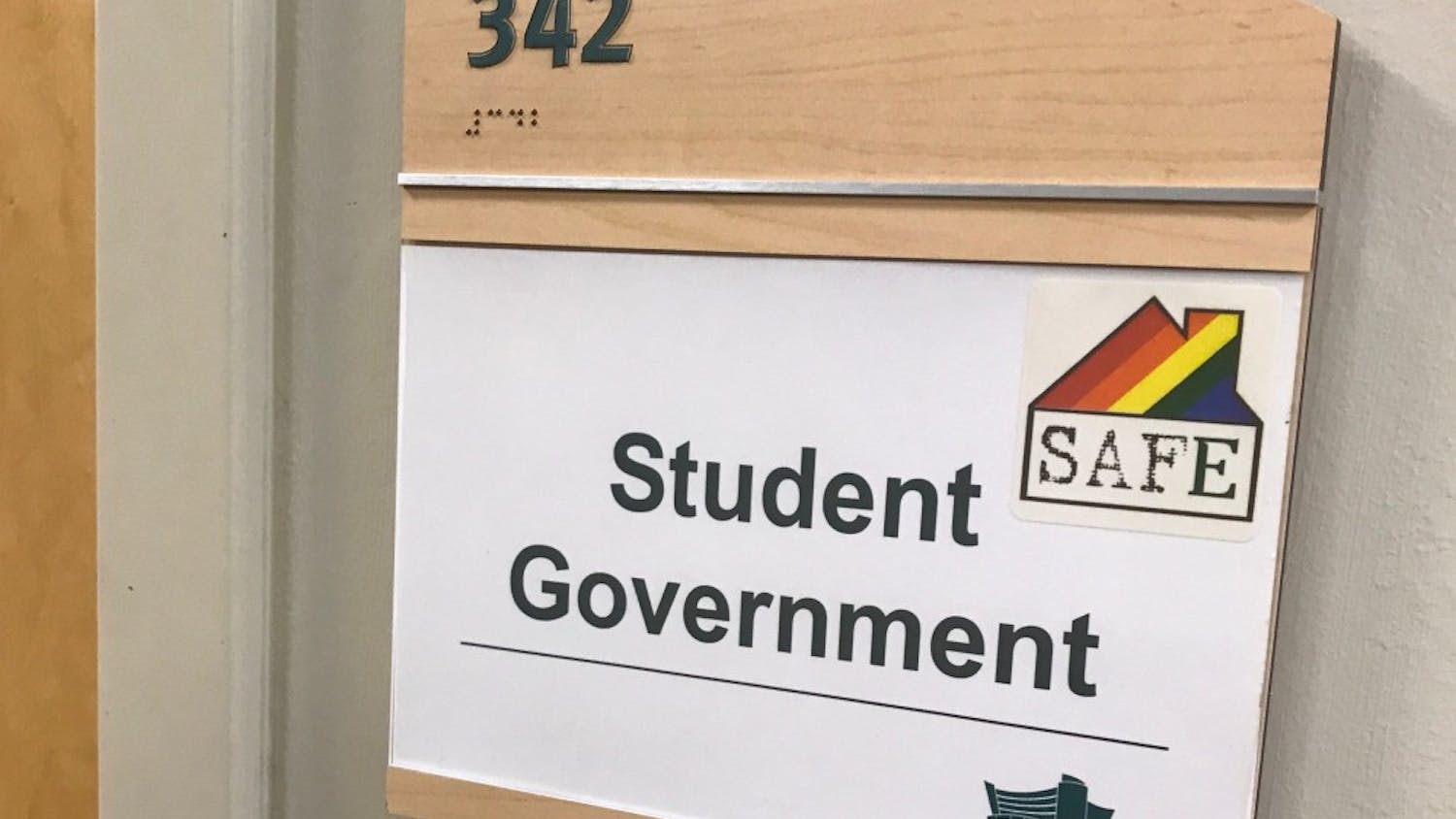About three dozen students gathered on the lawn in front of King Hall, on Friday, April 16, for a candlelight vigil to honor victims of anti-Asian violence.
The vigil was organized by members of the Student Government, the Southeast Asian Student Association (SEASA), and Kapamilya Club, EMU’s Filipino-American student organization.
A series of mass shootings occurred across three Atlanta spas on Tuesday, March 16. Eight people were killed, including six Asian women. The shootings were followed by a wave of vigils and marches across the country that aimed to bring attention to the increase in anti-AAPI discrimination and violence.
According to a report released by the Center for the Study of Hate & Extremism, anti-Asian hate crimes have surged among America’s largest cities by 149% in 2020. In New York City, where AAPI citizens make up 14.5% of the population, anti-Asian hate crimes rose 833% from 2019 to 2020. In Cleveland, Ohio, where 2.4% of the population is AAPI, anti-Asian hate crimes rose 200%.
In the weeks following the Atlanta shootings, Emily Tran, an EMU freshman who serves as the secretary of SEASA, made sure to check on her Asian family members across the country. As someone with relatives in potentially more dangerous areas of the country, Tran continually worries for her family’s safety.
Because Tran is part Vietnamese and part Caucasian, she noted that she is potentially less likely to be a target of discrimination.
"I think, most of all, I‘m just scared for myself and my family,“ Tran said. "I think that’s definitely the biggest thing, and I feel fortunate enough that I [appear] more white than Asian. So sometimes I feel fortunate about that, but I know that’s not something that other people don’t have the privilege of being thankful for."
Alicia Yi, a student at Wayne State University, spoke during the vigil to share her own experience as a target of anti-Asian discrimination. She described being verbally harassed by a group of men while at Tomukun Noodle Bar in Ann Arbor. Yi felt increasingly uncomfortable and unsafe as the men told her, “F- China,“ and “F- the country that started the virus.“
“What I want people to take away from this [story] is even if your not a person of color, the biggest thing you can do is be an ally, and show up for not only the Asian-American community, but other communities who are struggling, who are being overlooked, and who are not being listened to,“ Yi told those present at the vigil. ". . . I hope you guys continue to not only educate yourselves but take the time to educate your friends. Ignorance is bliss, but ignorance is also dangerous.”
Jeffrey Hoang, a student senator who helped organize the event, expressed that the vigil was not only meant to educate allies but to show support for other AAPI students.
“The message and the goal is that Asians and Asian-Americans in the United States are strong and shouldn’t be messed with and that they’re also loved and appreciated in their communities,“ Hoang said. "Hate and violence and harassment are not things that anybody should stand for or have to face in America.”
Organizers at the vigil handed out fliers that encouraged others to speak up during xenophobic encounters, donate to AAPI COVID relief funds, and support small AAPI businesses.
As an Asian-American himself, Hoang felt called to stand in solidarity with the community.
“Honestly, as an Asian-American, I feel like sometimes we try to hide our identities, or try to assimilate, and I feel like that’s kind of what I’ve kind of done most of my life,“ Hoang said. “So seeing all these attacks has really made me focus on who I am, and how I should be more involved in my community and care for them.”
Justin Arriola, president of Kapamilya Club, hopes that the wave of demonstrations against AAPI hate can help start conversations about discrimination.
“I feel like prior to these few months, no one has really spoken about Asian racism, because they just feel like it never really happens,“ Arriola said. "But it happens all the time. I experienced it just recently. It’s everywhere.”














